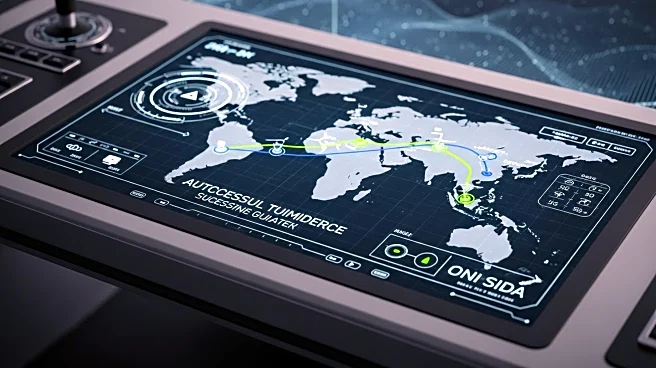What is the story about?
What's Happening?
Samsung Heavy Industries, in collaboration with Evergreen, has completed a trans-Pacific voyage using its Autonomous Navigation Technology on the Ever Max containership. The system performed 104 optimal guidance operations and 224 automatic ship control operations during the 10,000 km journey from Oakland, California, to Kaohsiung, Taiwan. It analyzed weather conditions every three hours and adjusted the vessel's route without crew intervention. The technology combines radar, GPS, and camera signals to create situational awareness and control engines and rudders for collision avoidance.
Why It's Important?
The successful demonstration of AI-based autonomous navigation marks a significant advancement in maritime technology. It could lead to more efficient and safer shipping operations, reducing fuel consumption and ensuring on-time arrivals. The technology's ability to optimize vessel performance and adapt to changing conditions highlights the potential for AI to transform the shipping industry. This development underscores the importance of innovation in enhancing operational efficiency and reducing supply chain disruptions.
What's Next?
Samsung Heavy Industries may continue to refine its Autonomous Navigation Technology, exploring new applications and capabilities. The success of this voyage could lead to increased adoption of AI-based systems in the shipping industry, driving further advancements in maritime technology. Stakeholders will likely monitor the performance of these systems and their impact on shipping operations.
Beyond the Headlines
The use of AI in autonomous navigation raises questions about the sustainability and security of maritime operations. It may lead to discussions on the ethical and regulatory aspects of AI integration and the role of industry in supporting innovation.















